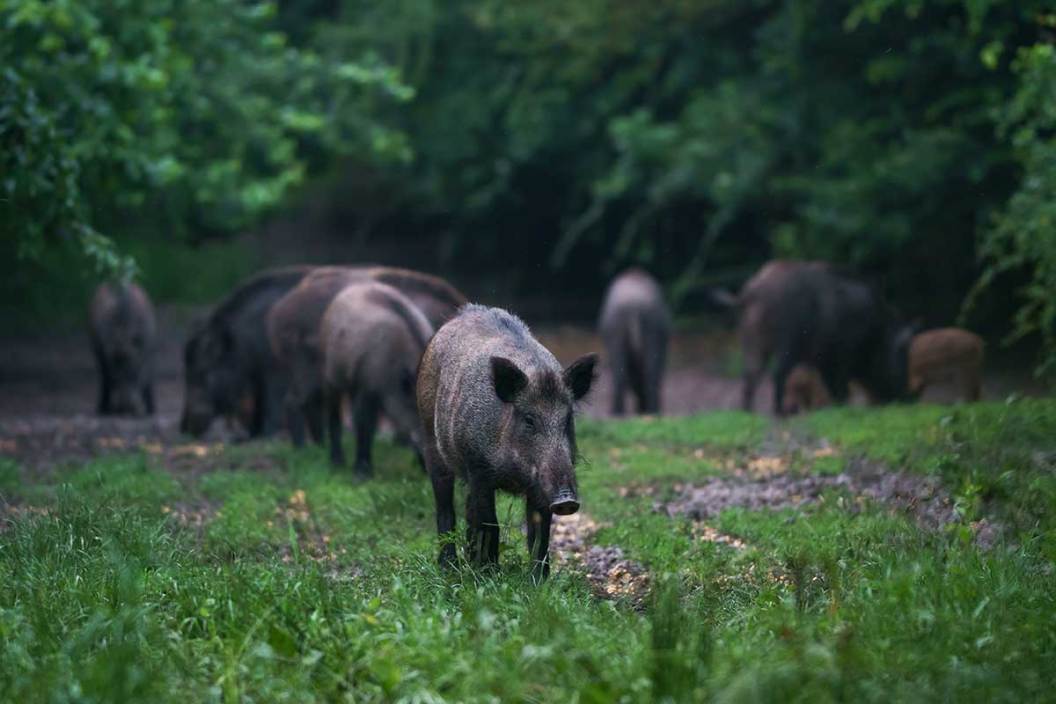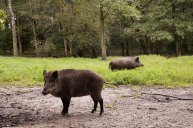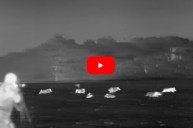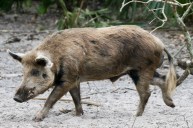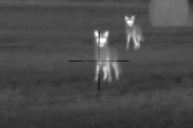Thanks to a new law, night hunting for hog and coyote can occur more frequently in Alabama.
Alabama has made strides to increase feral hog and coyote hunting opportunities in the state by permitting a special hunting license that will allow for hunting after dark, detailed in an announcement from the Alabama Department of Conservation and Natural Resources.
The new law, signed by Governor Kay Ivey in May, allows outdoorsmen and women who purchase a special permit to hunt and kill the animals at night using lights or night vision equipment. Previously, night hunting of these animals was only allowed with a special depredation permit.
Once the hunting season is finalized, Alabama residents will be able to purchase a $15 license, and $51 for non-residents. Chuck Sykes, Wildlife and Freshwater Fisheries (WFF) Director, suggested the 2021 season for hunting feral swine and coyotes at night will likely start on July 1 and run until November 1. For subsequent years, he said the nighttime season will likely start as soon as February 11 and run until November 1.
Alabama News reported that 300 permits have already been purchased, and the state is expecting to sell up to 200,000.
Matt Weathers, who serves as Chief of Enforcement with the Alabama WFF Division, said it was a beneficial move across the board.
"To this point in our state, those who wish to hunt feral swine or coyotes during nighttime hours have to get a permit that is only issued to landowners," Weathers said. "Those landowners can list friends, family or delegates on the permit to take those animals at night for crop damage, property damage or livestock damage. This is done through special permitting through the local WFF District Office. The new law provides for a license that allows anyone in the state to hunt feral swine and coyotes at night by buying a license to hunt on any private or leased property where they have permission to hunt. So, if you lease a hunting club, if the person or corporation you lease that property from allows you to hunt at night, you can purchase the license to hunt those animals at night on your hunting club. And you can do that without the landowner coming to us to get a permit."
In other words, increased Alabama hunting opportunity and access is a major outcome, alongside the need to lessen invasive species and predator numbers.
"It represents a new hunting activity for the state, and it will enlist as many as 200,000 hunters in this fight against two insidious predators," said Weathers. "So, a new hunting activity; that's a good thing. You have more feral swine and coyotes being removed from the state; that's a good thing, too. It's a win-win."
Wild hogs have proven a nuisance since their arrival as an invasive species inside Alabama's borders. Alabama Department of Conservation and Natural Resources estimates claim feral swine cause $50 million in damage to private property annually in Alabama. Coyotes have been known to have predatory impacts on farm animals and whitetail deer fawns, and poses threats to the populations of one of the state's favorite game animals.
There are also gear-based changes tied into the new license and law, which Weathers expanded on.
"Those who buy the license will be able to use equipment that has heretofore been prohibited," Weathers added. "During the established season, you will be able to use night vision or thermal optics. You can have lights attached to your firearms. Those technologies are emerging and make the taking of these animals a lot more efficient."
With legal nighttime hunting of hogs and coyotes on the horizon, Alabama will join the 46 other states that allow it for non-game animals.
For more information on night hunting, as well as hog hunting and predator hunting as it becomes available, check in with OutdoorAlabama.com.
Products featured on Wide Open Spaces are independently selected by our editors. However, when you buy something through our links, we may earn a commission.
NEXT: TEXAS IS STILL LOSING THE WAR ON FERAL HOGS
